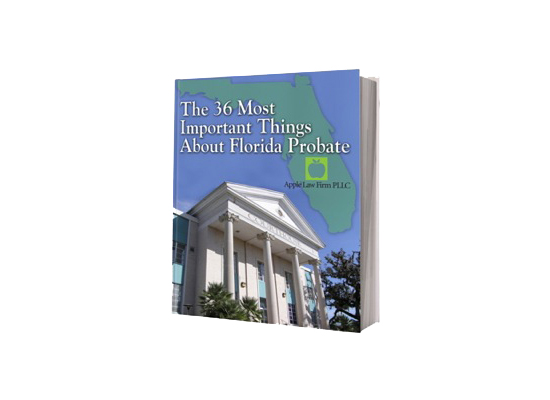LANDING SAFER
Irrevocable Life Insurance Trust (ILIT)
The Traditional Irrevocable Life Insurance Trust
The Irrevocable Life Insurance Trust (ILIT) is a very powerful tool at the disposal that the many of the best estate-planning attorneys in Jacksonville utilize. A Florida Irrevocable Life Insurance Trust (ILIT) can permit a client to reduce estate taxes so they can leave more of their estates to their loved ones.
There are two types of irrevocable life insurance trusts: the traditional insurance trust and the modern irrevocable life insurance trust. We often recommend the Traditional Irrevocable Life Insurance Trust to our clients with estates worth over $5.45 million or $10.9 million if the client is married. If your estate is worth less than these amounts, including the value of the life insurance policy, then we recommend the client look into the Modern Irrevocable Life Insurance Trust. You can find information about the Modern Life Insurance Trust on this page.
The Benefits of the Traditional Life Insurance Trust (ILIT)
The Irrevocable Life Insurance Trust offers a lot of advantages. One of the most significant benefits this trust provides is the ability to save on death taxes, which are known as estate taxes. There is a common misconception that life insurance proceeds are not subject to Federal Estate Taxes. Beneficiaries may receive the life insurance proceeds free of income tax, but the IRS will tax the decedent’s estate for the value of the insurance policy. Thus, life insurance policies are included in a person’s taxable estate when he or she dies.
Estate planning attorneys created the Traditional Life Insurance Trust to save a decedent’s estate from paying expensive gift and estate taxes after death. The client saves money by transferring ownership of the insurance policy to the trust. The client will not own the life insurance policy, or have any incidents of ownership, which means the life insurance proceeds will not be included in the client’s estate when he or she passes away.
Let’s illustrate the trust’s ability to save taxes through an example. Anna and Jack is a married couple with a combined net estate of $16 million. $1 million of the estate is a life insurance policy. Both Anna and Jack die this year, and the current lifetime estate tax exemption is $5.45 million or $10.9 million for a married couple. Their estate would face around $2 million in taxes overall, and their life insurance policy would face a tax of around $400,000.
If the life insurance policy was in an Irrevocable Life Insurance Trust, then it would not face the tax, and the couple’s heirs would receive the full life insurance policy. The proceeds from the insurance policy can then be used to provide your estate with the liquidity to pay estate taxes, pay off debts, pay final expenses and provide income to a surviving spouse or children.
How an Irrevocable Life Insurance Trust (ILIT) Works
There are three parties involved in the Irrevocable Life Insurance Trust. The grantor is the client that creates the trust. The trust must also have a trustee, which is the person that is in charge of managing the trust. Once the grantor passes away, it will be the trustee’s job to give the proceeds of the life insurance policy to the trust beneficiaries. Finally, the trust must have beneficiaries, who are the people the grantor wishes to inherit the life insurance proceeds after death.
Once the estate planning attorneys establish the trust, the client can use the annual gift tax exclusion to make cash contributions to the trust. In fact, multiple persons can fund one large policy that benefits multiple beneficiaries without using anyone’s lifetime gift tax exemption. Currently, an individual may give up to $14,000 a year without facing any gift and estate taxes, which is known as the yearly gift tax exemption. Further, this amount does not eat into the same person’s lifetime exemption. The beneficiaries can forgo the present gift (instead of the future proceeds), and the trustee uses the remaining gift to pay the premium on the life insurance policy.
To illustrate how this might work let’s look at the following example. Say Anna and Jack have three children: Molly, Junior, and Norma. These children all have spouses: Bradley, Melissa, and Bill. The children and their spouses have a combined 9 children. Now these 15 people can all contribute $14,000 each into the Irrevocable Insurance Trust. This means the family can contribute up to $210,000 a year without using their lifetime gift tax exemptions. This can quickly add up to some significant financial benefits for the family after Anna and Jack pass away.
The Irrevocable Life Insurance Trust is Flexible
This type of trust is flexible and gives the client many options. For example, the attorneys here can structure the trust to provide income to a surviving spouse. Once the grantor dies, then the trust can distribute the remainder to the children from a previous marriage. A client could even stagger the distribution of the insurance proceeds over a term of years to protect a financially irresponsible child.
However, there are some downsides to using the Traditional Irrevocable Life Insurance Trust. First, a modern insurance trust is much more effective for client’s with a net worth under $10.9 million, which is most people. Second, this type of trust requires a separate Tax ID number. Third, every beneficiary of the trust must receive a crummey letter, which notifies a beneficiary they have certain withdrawal rights. If this crummey notice isn’t sent, then the IRS will count the trust as part of the decedent’s estate.
The Law Firm of David Goldman PLLC is dedicated to helping our clients make educated, informed decisions about their assets. The attorneys here pride themselves on creating estate planning that caters to the client’s needs. The attorneys will work with you and your team of financial advisors and CPAs to implement a highly sophisticated estate plan.
If you would like more information on Florida Life Insurance Trusts or to create a Life Insurance Trust in Jacksonville or other areas of Florida, CONTACT our Florida Irrevocable Life Trust (ILIT) Lawyers by email or call us at 904-685-1200 to discuss your situation today.












